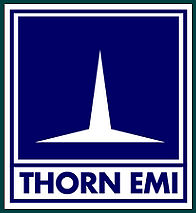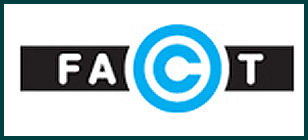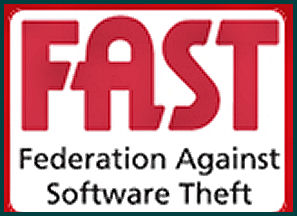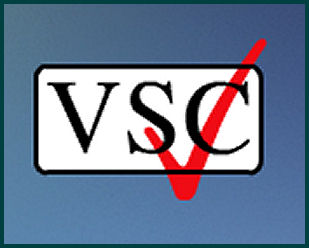Donald MacLean's Blog 8
COPYRIGHT OR WRONG?
"New media can enrich us ... but if we exploit new technology without regard for the creative consequences they'll impoverish us - we shall wake up one morning to find we have only amateur music and movies."
(Donald MacLean, age 50)
I wrote that in a memorandum to my boss in 1976. Three years previously EMI had hired me, a music and business graduate with, I guess, some creative and management reputation, to start new-media businesses ... and now I was proposing to give some attention to the world of politics. I had to justify this to a hard-headed chairman (and nobbut just succeeded.)
Intellectual property (IP) sounds off-putting ... it's the overall label for books and music and movies and videos and computer software etc. It was my job to create new IP businesses. I foresaw conflict between the nurturing of new media and the nurturing of creative product for them to deliver. "Publishing" would have to make some very difficult adjustments.
This blog follows that thread - to a present-day where those
adjustments are imminent.
"Technology opens up possibilities; copyright law shuts them down." So says Christian Engström.
He has just been elected to the European Parliament expressly to abolish copyright and patents. He leads "the Pirate Party" of Sweden. He talks of democratic freedom versus state-control, painting a picture of a Big Brother world where all our emails will be censored in case we attach a piece of music to them.
Citizens of Switzerland also have just initiated a political movement to curtail copyright under the title "the Pirate Party".
As I write this Stephen Fry has just made a speech - which is being widely quoted - lambasting movie and music companies for criminalising youngsters who avoid paying copyright. He thinks the legal action against the "Pirate Bay" website was unjust.
Even more quoted is a London schoolboy, Matthew Robson, with his description of how he and his friends use new media. They accept that they must pay for concerts and cinema visits but expect everything else they consume to be free. (They no longer use mobile-phone texting but communicate with each other via their online games consoles.)
I have searched in vain for any indication of who these good people think is going to pay for the creation of non-amateur product in their copyright-free world.
Thanks to the ease with which we can copy anything we like from the internet, and share it with friends, we have all become accustomed to this "freedom". For every music track bought online 20 tracks are now downloaded illegally (*). Last month, in France alone, 12.2m cinema tickets were bought ... but 13.2m films were downloaded on peer-to-peer connections.
The internet has removed the cost of distribution. The greater cost of creation remains - and is being paid by a shrinking proportion of each product's consumers.
The jolly swashbuckling image of piracy has spread from schoolboys to adults.
(The entertainment industries estimate that they are losing a total £12bn pa. I think that's iffy territory - on the one hand they cannot assume that every downloader would otherwise have bought the product - equally there's evidence that the most frequent offenders are also the best customers. But whatever the total, it is far past the tipping-point.)
Does it matter?
It does. Never mind the fat cats who earn obscene fees because they're popular - it matters to us - you and me.
If we think about it we find, I suggest, many circular systems in life. When we have some money to spare we give it to a bank, who lend it to someone who needs it - & who, in time, gives it back plus a fee - which the bank shares with the lender. A circular system. A cycle.
The copyright fee in the price of a successful book or record enables its authors to create the next one. If no-one buys it ... no next one. An efficient system. The 'copyright cycle'.
We've discovered lately that the Money Cycle had broken (to the huge cost of future generations).
Now we are sleepily breaking the Copyright Cycle - every one of us, as consumers, can now by-pass it if we wish.
But technology doesn't change that 'fact-of-life' ... if no-one buys things ... no next things!
We are in the situation of which I warned, 30 years ago.
Why does it matter? Aren't we entitled to use this wonderful new freedom to the full? And doesn't that include the freedom to share the fruits of it with our friends?
It matters because we are not adjusting to the inevitable consequence - the absence of professional creativity. We are not preparing ourselves for a world in which the only music and movies, the only IP, would be created by amateurs.
Excellent things are created by unpaid amateurs, of course - and modern technology empowers them. As an enthusiastic techno-muso I need no convincing. But would we intentionally shun all creative enterprises that require the day-after-day dedication of creative minds for an extended period ... sometimes in large teams (think TV, theatre, movies)?
I'm surprised that it is citizens of Sweden who have elected Mr Engström. I had a central role in creating the European broadcasting cooperative that has become 'Eurovision' and in that difficult process I came to have particular respect and affection for Swedes - not just for their impeccable English (and lovely pronunciation of it) but for their commonsense.
I'm surprised that hard-headed Switzerland has spawned a political party dedicated exclusively to piracy.
Mr Fry's prolific Tweets are fascinating - and his many creative activities must earn him significant reward - I'm surprised he thinks he can make a nuanced criticism of Copyright - he was bound to send the wrong signal.
But, as you see, I'm NOT surprised by this problem - and the inadequate understanding of it. It's a conundrum to which I've given much thought and effort over the years.
 |
This evening Ann and I will go to a party on the riverside terrace of the Houses of Parliament. It's the annual Reception of an alliance of 19 organisations in creative fields. I was the founder and first chairman of 5 of them. I'm happy that they are all flourishing and am delighted that Lavinia Carey, the able young lady who directs one of them - the British Video Association - has succeeded in persuading them all to collaborate in this Alliance.
1973
When I quit the BBC to create new-media companies I warned anyone who would listen that new technology would enable completely new forms of information and entertainment - and would create, also, a radically different environment.
My new colleagues in EMI who headed global operations in film production & distribution & cinemas assumed that video should be under their wing. But the nascent video business - publishing home-entertainment software - was more akin to the activities of our worldwide music operations. These two divisions were headed, respectively, by Lord Delfont in London and Bhaskar Menon in Los Angeles - two towering figures (whom I liked and much respected). They invited me to attend their planning meetings. I felt like a moth which had to fly, daily and dangerously, close to two large cobwebs.
Perhaps it was just expedient for Group management to decide that, at least for the time being, "video" should be an independent business under me.
(Had the Chairman been here today I know he would be impressed by the fact that cinemas are even more popular now ... but that even their robust revenues are surpassed by those of video!)
I had just initiated a company to make jingles and commercials for radio stations worldwide and it was joined in my new division by a company producing corporate films, headed by Cliff Michelmore and Gordon Rees (later Sir Gordon, widely credited with Margaret Thatcher's successful election campaign).
(Whenever I hear the expression "between a rock & a hard place" I recall a phone call from a Group Finance Director who was reading with bewilderment expense claims for Havana cigars and membership of exclusive Clubs from my celebrity protégés! He was, with difficulty, persuaded to allow me a 'cost/benefit' discussion with the claimants.)
I was impressed by a small publishing company which was creating 'didactic' books for children and teenagers. Their purpose was to impart knowledge and they did so in a most attractive, modern way. I discussed with the company's owners the potential benefits of our buying their company and producing video versions - they said they preferred to do so on their own. What happened next was significant. Their first videos were widely praised and sold well ... initially ... but sales of each one didn't fade, in normal fashion, they stopped abruptly. My Marketing Director reported thus: "One kid gets one, takes it to school, and by the end of the week the other 29 members of the class have free copies."
Within months enterprising milkmen throughout the country were hiring a second VHS machine and delivering with the milk home-made copies of our movie cassettes ... recovering the cost of the tape and their effort - but making no contribution to the huge creative cost of the product.
Our lawyers told me that none of them was doing anything illegal - Copyright Law, the foundation of a book-publishing industry whose products were difficult to copy, gave no protection to products which were easy to copy - and which would get even easier if my assumptions about digital technology proved correct.
This was
where I advised my boss that if we aimed for a leading position in new-media
markets we had better show some of the enterprise of the bright schoolkids and
clever milkmen and do something to remedy this "radically different
environment" of which I'd warned. I had to persuade all our competitors
that we must act together. The Law of the Land had to be updated.
1979
EMI and Thorn merged to create "ThornEMI". I had new colleagues - a raft of new potential synergies. My base moved to a new tower HQ on the edge of Covent Garden.
 |
1980
Almost all of us, at this time, leased our TV sets from high-street Rental shops - also new colleagues - and with the advent of VHS recorders they too offered a credible channel for marketing our movies and TV programmes on cassette.
Mirroring these internal tensions at ThornEMI the Motion Picture industry considered, with some justification, that videos were merely another means of delivering their product, while the music industry, with equal logic, knew that videos were simply another retail product - records with pictures. I visited the leaders of their representative bodies.
President of The Motion Picture Association of America, Jack Valenti, made it plain that he considered that his personal and powerful lobbying in Washington would find the solution to piracy - which solution must then be followed worldwide. I got the message that I should not meddle ... videos were movies, movies were American, America would fix the problem.
Heading the British Phonographic Industry was another exceptional character, Maurice Oberstein, Chairman of CBS Records. In his impressive London office my friend Obie and his beautiful red setter received me more fraternally ... and with the news that BPI had registered "The British Videogram Association" with himself as Chairman and, shrewdly, were about to announce a formative meeting at BAFTA, the mecca of the UK film industry! He invited me to join its board as Deputy Chairman - I thanked him and said I would attend his meeting and would give my support to whatever emerged if it seemed fit-for-purpose.
It was, predictably, a dramatic meeting. Obie and his proposed Board (all Managing Directors of record companies) were seated on stage as the auditorium filled to the doors with major showbiz executives ... especially the heads of film companies! Two hours later when the dust settled the video industry's 'BVA' had come into being, with a Board comprised equally of senior film and music figures, and with me as Chairman. I invited Roy Simpson of Universal Films to be Deputy Chairman, he accepted and was elected. Roy joined me in thanking the music industry for their enterprise, and Obie left the stage ... to his great credit, with dignity, wishing us well.
|
|
As BVA's Chairman 25 years ago I visited the Home Secretary, William Whitelaw, and asked him what we - they and we - should do to end 'milkman' piracy, explaining that, unchecked, it would rapidly reduce investment in movie-making. He was sympathetic but didn't see what the Government could do. In particular he could not accept any increase in the demands made on Police resources.
'Cheap-movies-with-your-pinta' became so popular and so profitable that the underworld moved-in. Very soon the police were having to deal with turf-wars between sinister figures who operated warehouses with serried racks of VHS machines. I made sure that Mr Whitelaw was apprised of this.
After consulting the Commissioner of the Metropolitan Police I revisited the Home Secretary, with this proposition:
"I recognise that you will not welcome adding
to the long list of crimes with which the police have to deal, but regrettably
that has become necessary. Here is the solution I propose:
if the Government will help us extend copyright law to cover videos, and then
require the police to enforce that law, the video industry will create and
fund an
agency to investigate and produce the evidence on which the police can act."
1983
 |
After some delay for consultation that proposition was accepted. (And, naturally, announced as a Government initiative!) The complex process of amending Copyright Law began (interminable meetings at the Patents Office in High Holborn!) and the Federation Against Copyright Theft was born - FACT - the second of 'my' five bodies at tonight's shindig.
1984
My view was that ThornEMI's next new-media business should be computer software. Readers of my earlier blogs will know of my enthusiasm for the first personal computers. The British Computer Society also recognised the potential of a new retail industry (they represented the established mainframe industry and its highly-skilled programmers). They were aware that software remained outside copyright and recognised that this would be a major impediment to serving a retail market ... indeed that it faced many of the challenges that the Video industry was tackling. I was invited by the Society's able manager, Dr Douglas Eyeions, to create a replica of the BVA and FACT.
 |
Thus was born, in 1984, the Federation Against Software Theft - FAST.
This, the third industry-wide organisation in my list, was well-resourced. And, of course, as its Chairman, I started with some experience of the pitfalls and some of the solutions. I was interviewed on popular TV and Radio programmes, explaining that it was consumers who were the important victims of this new form of theft. The Police Commissioner recommended to me a senior Commander, who retired from 'the Met' and was appointed to run FAST. I have an old-man's pride that, like the other bodies, they are flourishing.
1989
 |
If you
ever buy or rent videos in the UK you will be familiar with the logos of FACT
and of 'my' 4th organisation (an associate member of tonight's Alliance) which
came into being in 1989. The role of the Video Standards
Council is to implement the film-classification system which replaced
censorship in the UK and about whose birth I have written in my preamble, and
to apply the Code of Conduct subsequently adopted for the computer and video
games market.
 |
When I
retired (in 1986) the newly-licenced British Satellite Broadcasting, BSB,
asked me
to evolve a system that would allow their viewers to implement the age-rating of
films by simply 'telling' their set-top box that the household contained
children under the respective age limits. Sitting at some
traffic-lights, en route for a meeting about this at BSB's offices, the
outline of the solution came to me (exploiting some of the large bandwidth of
their revolutionary technology). I failed to notice, for several
seconds, that the lights had turned green and I was holding-up a lane of
impatient drivers. So I accelerated rather hard. The other thing I
had failed to notice was that the nice BMW behind me was
topped with blue lights. I was late for the meeting - and late home
afterwards, having to check-in my licence at the local nick.
 |
The entrepreneurs of computer and video games were as disparate a bunch of personalities (and as difficult) as those in the movie and music industries. They asked me to help them find common-cause amongst themselves and in 1989 I reluctantly agreed to chair a definitive all-day assembly (in North London) ... which created ELSPA, the Entertainment and Leisure Software Publishers Association. Organisation number 5.
As the 'new-media' man in a company which was dominant in so many facets of entertainment I suppose I had acquired some industrial status ... I was, for example, elected Chairman of an Information Industries Council in the Prime Minister's Cabinet Office, bringing together the leaders of 32 industries as diverse as Broadcasting and Print Publishing (Newspaper publishers soon opted-out - to the relief of most of the others!). This body adopted the acronym CICI (whose meaning I do not immediately recall - perhaps the Confederation of Information Communication Industries - I prefer my version.)
23 years after retirement I have now, of course, no influence on the course of events. I have relished the wonderful power that broadband and the internet have given me (with its help I can usually finish by lunchtime the big General Knowledge crossword in Saturday's Telegraph ... and I hope that most of the facts I quote to you in my blogs are accurate.)
I have also watched sadly the inadequate adjustments of the Music and Movie industries to events which are unfolding exactly as I foresaw.
The middlemen (Record Companies and Record Retailers, for example) are being sidelined ... as consumers we can save those costs and obtain our music directly from its creators (if both parties wish). That is, it seems to me, an inevitable 'organic' change. Unfortunately, however, we are overshooting ... file-sharing is eliminating the creators, too!
I believe that that overshoot will correct itself - because that is in the interest of both parties - creator and consumer.
Meantime
technology marches on. Video streaming has become easy and effective (watch
the little videos at
http://www.spotify.com/en/#video and
www.plushmusic.tv or use the latest BBC iPlayer
http://www.bbc.co.uk/iplayer/).
Video streaming will, I believe, soon dominate our internet use for a while.
Will the overshoot go further still? Yes. Think of a group of teenagers whose mobile phones contain music & videos ... and Bluetooth! The group doesn't even need any physical connections to 'synchronise' their stores of entertainment.
Can the Copyright Cycle be repaired? I think not in its traditional form. I believe that a new one must evolve.
But first, we - consumers - must discover that we need it.
"New media can enrich us ... but if we exploit new technology without regard for the creative consequences they'll impoverish us - we shall wake up one morning to find we have only amateur music and movies."
(Donald MacLean, age 83)
D.H.M.
"Any
activity becomes creative when the doer cares about doing it right, or better.."
John Updike.
- - - - - -
The
creative industries contribute £113bn ($183bn) to the UK economy (8% of GDP)
and employ 1.9m people
AFTER
annual loss to piracy: £448m. (Music-£180m, Film-£268m)
- - - - - -
(*
Estimated global number of music tracks downloaded in 2008
which made no contribution to the creators: 40bn.)
- - - - - -
Back to 'Contents' table
- - - - - -
